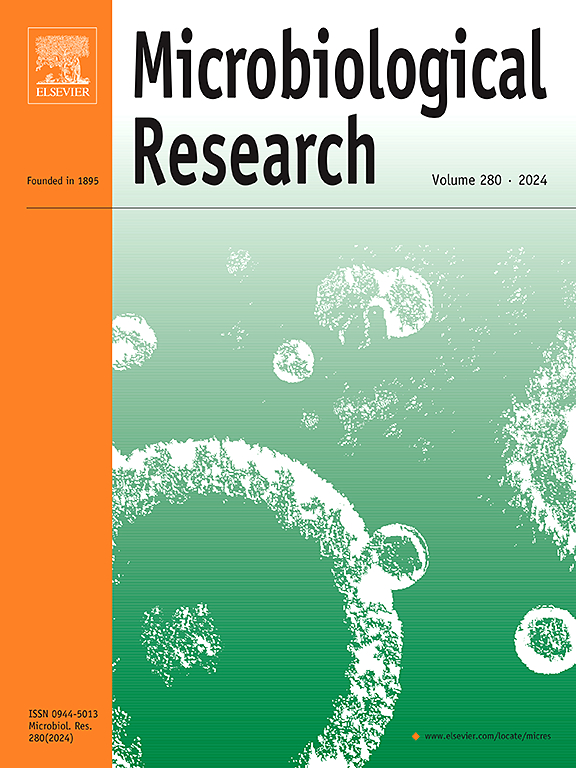肠道微生物群在类风湿关节炎中的作用:益生菌、益生菌和药物干预调控的潜在细胞机制。
IF 6.1
1区 生物学
Q1 MICROBIOLOGY
引用次数: 0
摘要
类风湿性关节炎(RA)是一种慢性自身免疫性疾病,主要影响关节及多个器官和系统,病程长,治愈难度大,严重影响患者的生活质量。临床前和确诊的 RA 患者肠道菌群组成的改变表明,肠道细菌在 RA 免疫功能中发挥着重要作用。然而,调节肠道菌群以改善 RA 病情的机制尚未完全明了。本文回顾了通过益生菌、益生菌和药物干预来调节肠道微生物群及其代谢产物的方法,并讨论了它们对 RA 的影响。此外,本文还探讨了肠道菌群的细胞治疗机制在治疗 RA 方面的潜在预测作用。这些研究结果表明,恢复肠道菌群的生态平衡和调节肠道屏障功能可增强免疫系统功能,从而改善类风湿关节炎。这为类风湿关节炎的治疗提供了新的思路。本文章由计算机程序翻译,如有差异,请以英文原文为准。
Role of gut microbiota in rheumatoid arthritis: Potential cellular mechanisms regulated by prebiotic, probiotic, and pharmacological interventions
Rheumatoid arthritis (RA) is a chronic autoimmune disease that primarily affects joints and multiple organs and systems, which is long-lasting and challenging to cure and significantly impacting patients' quality of life. Alterations in the composition of intestinal flora in both preclinical and confirmed RA patients indicate that intestinal bacteria play a vital role in RA immune function. However, the mechanism by which the intestinal flora is regulated to improve the condition of RA is not fully understood. This paper reviews the methods of regulating gut microbiota and its metabolites through prebiotics, probiotics, and pharmacological interventions, and discusses their effects on RA. Additionally, it explores the potential predictive role of cellular therapy mechanisms of intestinal flora in treating RA. These findings suggest that restoring the ecological balance of intestinal flora and regulating intestinal barrier function may enhance immune system function, thereby improving rheumatoid arthritis. This offers new insights into its treatment.
求助全文
通过发布文献求助,成功后即可免费获取论文全文。
去求助
来源期刊

Microbiological research
生物-微生物学
CiteScore
10.90
自引率
6.00%
发文量
249
审稿时长
29 days
期刊介绍:
Microbiological Research is devoted to publishing reports on prokaryotic and eukaryotic microorganisms such as yeasts, fungi, bacteria, archaea, and protozoa. Research on interactions between pathogenic microorganisms and their environment or hosts are also covered.
 求助内容:
求助内容: 应助结果提醒方式:
应助结果提醒方式:


